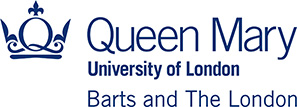Wellcome Trust PhD Programme in Science
Health data in practice: human-centred science
Research area: Population and Public Health
Applications for this round are now closed. Application dates for 2021 entry will be advertised soon.
Follow us on Twitter: @hdip_dtp

A group of students looking over some data
Our Wellcome-funded doctoral training programme applies human-centred data research to health and care data, and will introduce you to a wider context for your research, enabling you to draw on concepts, disciplines and methods underpinning algorithmic designs, sensing and data capture, human-interactions, qualitative and quantitative evaluation and decision-making, in real-world settings. You will develop as a future scientific leader able to apply interdisciplinary perspectives to your research and realise the potential of innovations in health data research for the benefit of patients, the public, health care systems, and society.
The Wellcome Trust Health Data in Practice programme combines scientific excellence with a commitment to improving the working environment and transition support for trainees. We commit to being part of an evolving community of practitioners who will develop and share practice to bring science and culture together, placing both firmly at the heart of what we do.
 The availability, scale and depth of data collected in the course of health care, by or about patients – combined with data-driven approaches to its analysis – is creating a paradigm shift in health care and its delivery. Machine learning and other automated methods of analysis will only succeed in providing useful insights for health and care if we understand health data in practice: how data is actually generated, interpreted and used.
The availability, scale and depth of data collected in the course of health care, by or about patients – combined with data-driven approaches to its analysis – is creating a paradigm shift in health care and its delivery. Machine learning and other automated methods of analysis will only succeed in providing useful insights for health and care if we understand health data in practice: how data is actually generated, interpreted and used.
Human-centred data science operates ‘at the intersection of human-computer interaction, computer-supported cooperative work, human computation, and statistical and computational techniques of data science’ while preserving ‘the richness associated with traditional methods while utilising the power of large data sets’ and encouraging critical social perspectives on health data in practice. We adapt this concept to the 'health data in practice' doctoral training programme with the goal of developing highly skilled future leaders able to apply interdisciplinary perspectives to research and innovations in health data science for the benefit of patients, the public, health care systems and society.

Our east London location
Barts and The London is committed to pioneering medical education and research. Being firmly embedded within our east London community, and with an approach to education and research that is driven by the specific health needs of our diverse population, the programme will draw on these networks to enhance your research.
Programme management team
|
Programme Director; Professor of Clinical Epidemiology and Health Data Science; Associate Director, Health Data Research UK; ‘Actionable Information’ Theme Leader |
 |
|
Professor Sandra Eldridge Professor of Biostatistics, Director of Pragmatic Clinical Trials Unit; ‘Effective and Efficient Evaluation’ Theme Leader |
 |
|
Professor of Human Interaction; ‘Human-Data Interaction’ Theme Leader |
 |
|
Professor Deborah Swinglehurst Professor of Primary Care, Director of Postgraduate Studies; ‘Health Data in Practice’ Theme Leader |
 |
|
Dr Eleanor Groves [Interim] Programme Manager |
 |
For queries regarding the programme please contact hdip-dtp@qmul.ac.uk.

 Our training programme will introduce you to a wide context for your science and enable your development as ‘human-centred’ health data scientists capable of drawing on diverse concepts and disciplines and of engaging with real-world settings. Our programme leverages the strong track record of Queen Mary in developing and sustaining an innovative, inclusive and empowering research culture for its students and staff.
Our training programme will introduce you to a wide context for your science and enable your development as ‘human-centred’ health data scientists capable of drawing on diverse concepts and disciplines and of engaging with real-world settings. Our programme leverages the strong track record of Queen Mary in developing and sustaining an innovative, inclusive and empowering research culture for its students and staff. Our
Our 
 You will be supported in your career transition through individualised, coherent career management support with access to mobility opportunities, mentoring, enterprise support and internships, as well as embedding integrated placements and internships within the training pathways.
You will be supported in your career transition through individualised, coherent career management support with access to mobility opportunities, mentoring, enterprise support and internships, as well as embedding integrated placements and internships within the training pathways. Queen Mary has two
Queen Mary has two 

